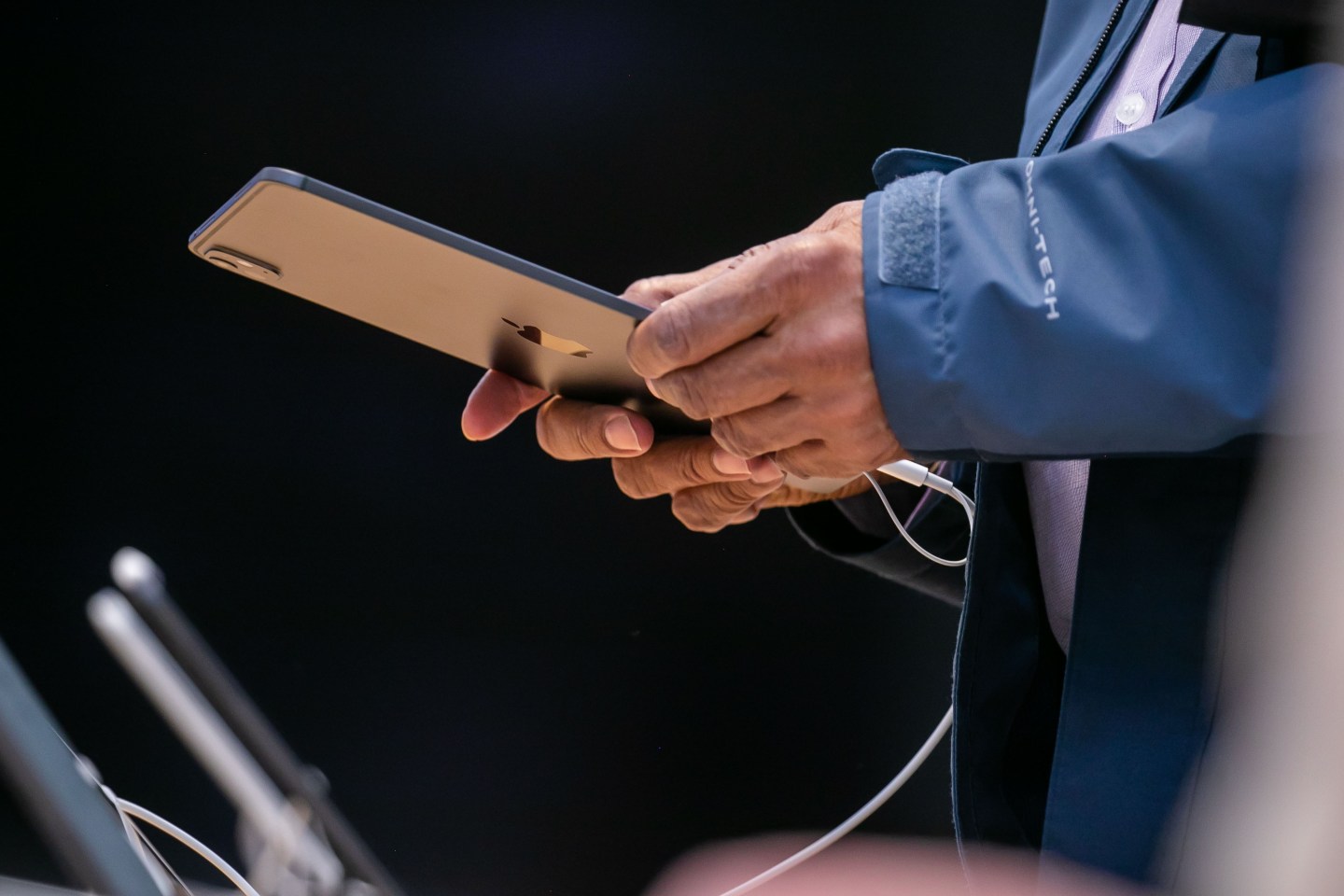Good morning. With so many Big Tech players reportedly giving $1 million to President-elect Donald Trump’s inauguration fund—OpenAI CEO Sam Altman is the latest, following Meta and Amazon—it made me wonder: Which techies gave money to President Biden’s inaugural committee four years ago, and how much?
Answer: Lockheed Martin, Boeing, Uber, Comcast, AT&T, and Qualcomm each donated $1 million to Biden’s (largely virtual) inauguration; most had major federal business that year. GM and Microsoft gave $500,000. Google gave services worth $327,000. Airbnb, Amazon, Doordash, Ford, Verizon, and Yelp were further down the table.
Many of these companies made similar donations to Trump in 2017, it turns out. So this year’s contributions aren’t so novel. To paraphrase an old political joke: What are a tech CEO’s favorite kind of shoes? Flip flops. —Andrew Nusca
P.S. Will you be at CES? We’re holding an invite-only Brainstorm dinner on Jan. 6 with a great group of top execs, including CTOs, CIOs, and CMOs. Register your interest here—I’d love to see you.
Want to send thoughts or suggestions to Data Sheet? Drop a line here.
Apple reportedly working on foldable device, new mouse, better AirTag

Apple is reportedly developing a “giant, iPad-like foldable device” for 2028—plus a new version of its Magic Mouse and an AirTag with a more powerful chip that gives them three times the range.
Bloomberg’s Mark Gurman says Apple’s next device could be the size of two iPad Pros side by side—if it can solve the “eliminate the crease” problem that so many device makers, foremost Samsung, have struggled with. The device would fill in the space between a traditional Mac and the standalone iPad Pro, which currently comes in two sizes: the “11-inch” (10 in. by 7 in.) and the “13-inch” (11 in. by 8.5 in).
Elsewhere, Apple’s reportedly working on a redesign of its Magic Mouse, whose sleek form—hand cramps and all—has barely changed since its 2009 introduction. (One change made in its 2015 refresh that wasn’t so welcome: the charging port on its underside.) The accessory is expected in a year or so.
Oh, and one more thing: Apple is reportedly looking to replace the U1 chip inside its popular AirTag trackers to allow for greater range, accuracy, and power efficiency. The company installed its U2 chip in the iPhone 15 and 16 models; it was only a matter of time before the component would find itself in an AirTag. The next generation is expected later this year.
OpenAI whistleblower found dead
Former OpenAI researcher Suchir Balaji, who left the startup earlier this year and voiced concerns about copyright violations, was found dead in his San Francisco apartment last month at the age of 26, according to reports.
San Francisco’s Office of the Chief Medical Examiner told CNBC that the manner of death was determined to be a suicide. The San Francisco Police Department also confirmed to CNBC that officers found no evidence of foul play. The news was first reported by the San Jose Mercury News.
“We are devastated to learn of this incredibly sad news and our hearts go out to Suchir’s loved ones during this difficult time,” OpenAI said in a statement.
Balaji left OpenAI in August after nearly four years there and told the New York Times in October that the company’s use of copyrighted data violated the law, adding that chatbots like ChatGPT were harmful to the internet. At the time he said he had not taken a new job and was working on “personal projects.”
“If you believe what I believe, you have to just leave the company,” Balaji told the Times.
The company has disputed the claims, saying it built its AI models with publicly available data, while observing “fair use” principles and widely accepted legal precedents. “We view this principle as fair to creators, necessary for innovators, and critical for US competitiveness,” OpenAI told the Times in October. —Jason Ma
Turkey fines Google for antitrust violations
Turkey has fined Google $75 million for antitrust violations in its ad-tech business.
Online advertising is a market where Google dominates both the buy and sell sides, and it has been accused by multiple regulators of using that position to overcharge advertisers and/or shut out rival ad-tech businesses.
The U.S. Department of Justice sued Google over the issue in September. The European Union’s antitrust enforcers issued a “statement of objections” last year—a possible prelude to an order forcing Google to change its ways, and a fine of up to 10% of global revenues. The U.K.’s watchdog issued its own statement of objections in September.
But Turkey has now jumped ahead. The country’s regulator found Google was dominating the publisher ad-server market and—chump change fine aside—gave it six months to start offering other ad exchanges terms as favorable as those it gives its own AdX. —David Meyer
Hackers access Rhode Island resident data, demand ransom
Rhode Island officials said Saturday that personal data and bank information for hundreds of thousands of residents was likely accessed by a group of hackers.
The international cybercriminal group has demanded an undisclosed amount of ransom for the stolen data, which includes Social Security numbers, state officials said.
Residents affected include users of Rhode Island’s government assistance programs, from its SNAP food program to its state health insurance marketplace, called HealthSource RI. The hackers gained access using RIBridges, the state’s online portal for social services.
“Any individual who has received or applied for health coverage and/or health and human services programs or benefits could be impacted by this leak,” state officials said.
The state government has “proactively taken the system offline” until it and vendor Deloitte can fix the issue and complete their investigation. Customers won’t be able to log in until further notice, but paper applications are still accepted.
More data
—The first criminal crypto tax evader in the U.S. has been sentenced to two years in prison.
—AI models inspired by roundworm brains? Investors in Daniela Rus’ Liquid AI say yes.
—Affirm, Sixth Street strike $4 billion deal. The funds will be used to underwrite short-term loans.
—U.K. investigates BlackRock, Prequin deal for antitrust concerns over markets data.
—Klarna lets its headcount fall by 22%, opting instead to invest in—gulp—AI.
—Google’s NotebookLM comes to enterprises. Prepare for podcasts about all-hands meetings.













